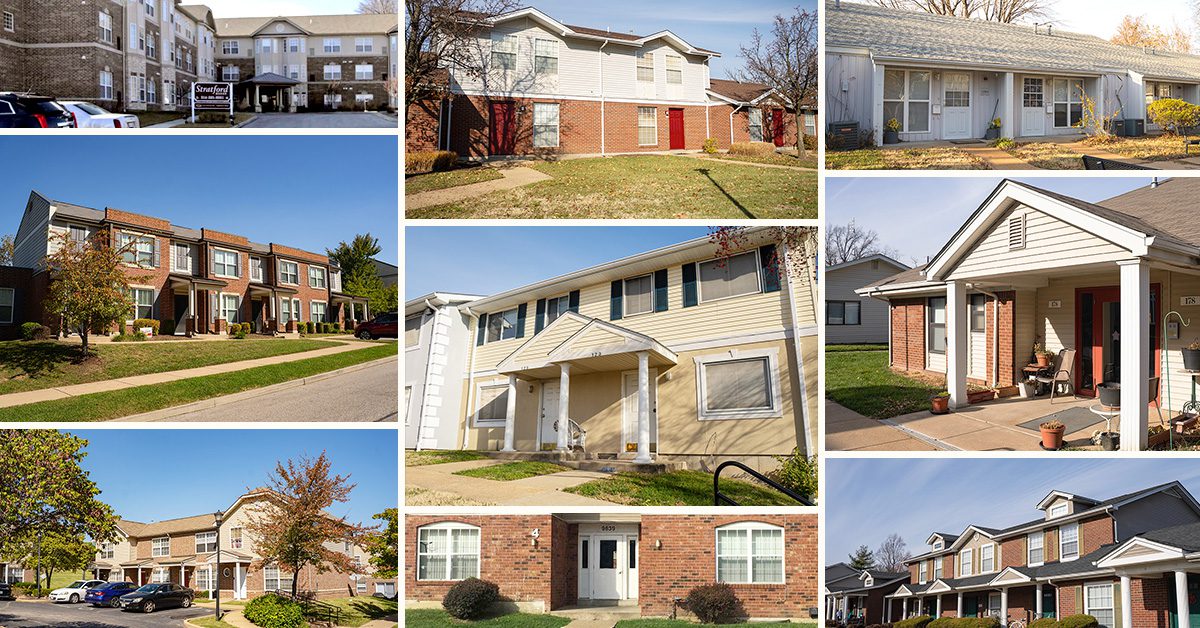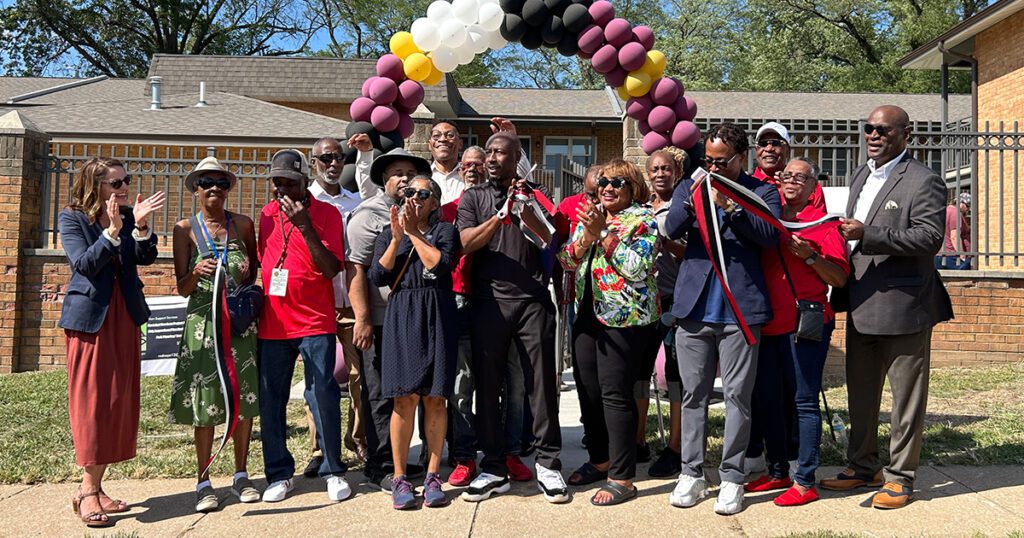With local rental rates rising at historic levels, finding decent, safe, affordable housing can be difficult—especially for seniors, for people with disabilities, and for families who earn low or moderate incomes. One of the organizations on the front lines addressing this ongoing challenge is County Housing, the official government housing authority in St. Louis County.
“The need for a home is universal, and County Housing works to ensure people with low and moderate incomes have that need met,” says Executive Director and CEO Shannon Koenig.
On the consumer side, County Housing provides leads on affordable rental homes or apartments through relationships they’ve developed or through trusted websites. “Once people have found a place to live, County Housing makes sure it meets national safety and quality standards,” Koenig says. “If something goes wrong, we make sure it gets fixed—and if something goes really wrong, we reissue the housing voucher so the family can try again to find a better place.”
County Housing also communicates continually with local landlords, both those who accept housing vouchers and those who are prospective program participants. An important part of its role is leveraging its relationships with landlords to advocate on behalf of residents, always striving to weave together supportive solutions for individuals who might be going through a vulnerable time while also giving them agency in their housing options.
Evolving to be more proactive
County Housing has recently begun an evolution to become even more proactive about meeting the needs of local individuals and communities. It’s in the process of improving its operations and aspiring to an elevated customer service experience through efforts such as a soon-to-be-released new website.
It has other new initiatives in motion too, and it’s working to address the negative perceptions that people sometimes encounter when they approach a landlord with a housing voucher.
County Housing’s evolution is taking place during a time when it has to cover higher rents with the same amount of funding from the federal government—and it continues to face a backlog on its waiting list. “In 2020, we had 6,000 people come on to our waitlist,” Koenig says. “We are still working on that list.” There are also years-long waitlists for each of the public housing developments County Housing manages.
“Our waitlists speak to the tremendous demand for decent, safe, and affordable housing,” Koenig says. “It’s difficult to get on a list, and then you’re never sure how long you’ll wait.”
In response, County Housing is updating its systems to keep the local community better informed about waitlist openings. To give people more options, it has also started attaching its vouchers to existing and new developments like Wellington Family Homes, a project that’s voluntarily converting former public housing to affordable housing in Wellston, and University Crossing, a new Low-Income Housing Tax Credit project at Interstate 70 and Hanley.
Responding to ongoing challenges
County Housing is constrained in its ability to change its payment standards—it’s limited by federally set fair market rents that apply to an entire metro area—so it can’t simply raise the amount it pays to meet rising rental prices. It adopted the highest payment standards possible during COVID (120% of fair market rents), and its staff is looking forward to changes on the federal side, such as the U.S. Department of Housing and Urban Development increasing the amount of fair market rents and using rental amounts based on smaller areas (such as a zip code).
Because housing voucher programs only have enough money to assist 1 in 4 people who qualify based on their income, Koenig says, County Housing advocates for increased funding from the federal government and local sources. And because chronic underfunding of public housing has not kept pace with the need for updating and investment, County Housing is becoming more active in real estate development, both redeveloping units it already owns using tools like the Low Income Housing Tax Credit program and partnering with other organizations to build new affordable housing.
County Housing’s goal is for its efforts to be a stepping stone for residents toward bigger and better things, including a path to homeownership. “Living in public housing is not a long-term solution for families,” Koenig says. “We’re reinforcing the cornerstone of the community’s foundation at a time when people need it most. The things we do actually change people’s lives.”




